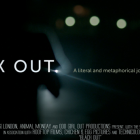Weber, Eva. Black Out. London: HSI, Animal Monday and Odd Girl Out Productions, 2012. HD, 47 min. https://vimeo.com/41361234.
Only about a fifth of Guinea’s people have access to electricity. And even these lucky few face frequent power outages that last many hours. This is a disaster for the economy, but also for the future of the country’s children. During the day, there is hardly any time to study, but in the evenings there is no light to read by. This film makes a link between the inventiveness and determination of the students and the changes taking place in the rest of GuineaWith few families able to afford generators, children have discovered the international airport, petrol stations and traffic roundabouts as unlikely places to revise. A good education is the only chance they have of having a better future than their parents. So as soon as exam season arrives, they go out every evening looking for light to study by, often walking for many miles in the middle of the night. A literal and metaphorical journey towards enlightenment, Black Out shows the obstacles these children have to overcome to achieve their dreams in one of the world’s poorest countries. With their resourcefulness and determination acting as a metaphor for the country at large, the film asks whether Guinea can at last fulfill its potential and secure a better future for its people. (Source: Adapted from IDFA and DVD cover)
© 2012 Autlook Filmsales GmbH. Trailer used with permission.
- Madureira, Nuno Luís. "Energy Transitions." Environment & Society Portal, Curated Collections, 2016.
- McKibbin, Warwick J. "Environmental Consequences of Rising Energy Use in China."Asian Economic Policy Review 1, no. 1 (2006): 157–74.
- Scheer, Hermann. Energy Autonomy: The Economic, Social and Technological Case for Renewable Energy. London: Earthscan, 2007.


